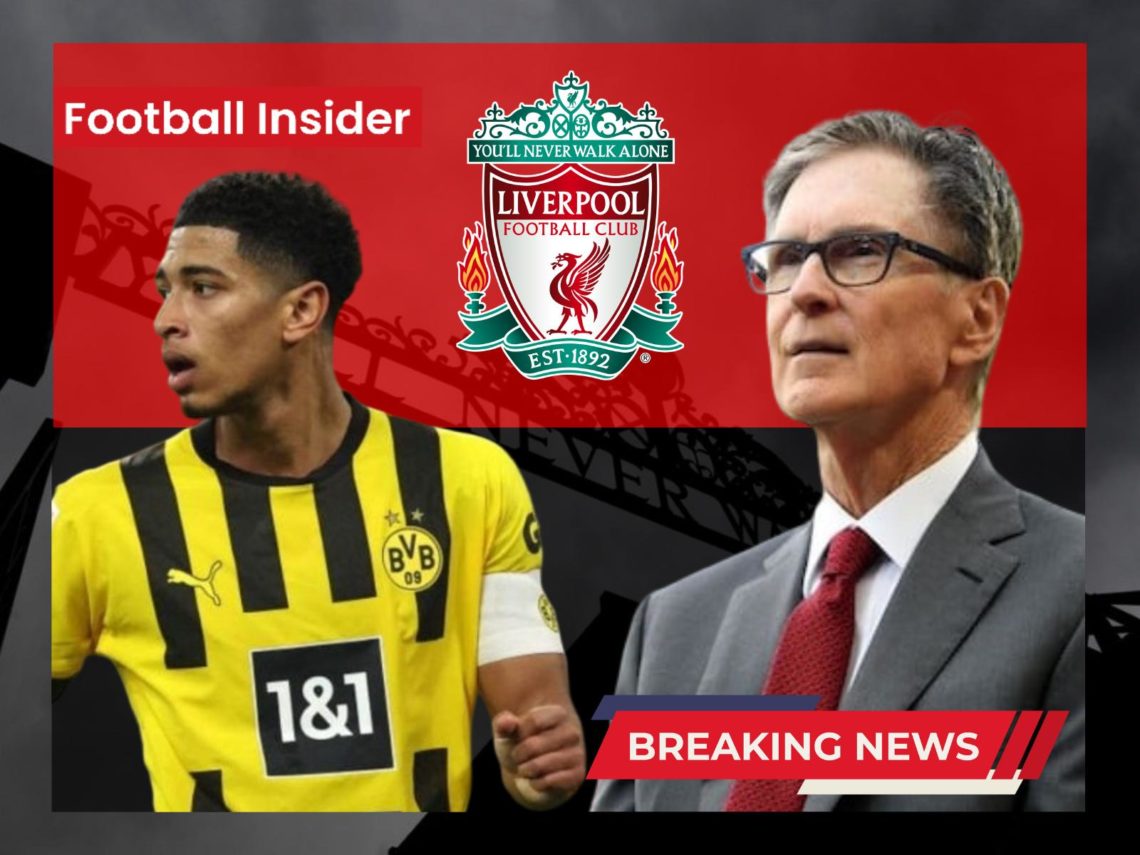
£3billion talks: Why Liverpool can’t afford to sign Jude Bellingham explained
Liverpool have pulled out of the race to sign Jude Bellingham from Borussia Dortmund – and this is why.
Bellingham is a magisterial talent, already among the world’s best and headed expeditiously for football’s highest pantheon.
That said, there are myriad reasons why Liverpool might have chosen to abort the mission to secure his signature, and all of them ultimately come back to finance.
It has been widely reported that whoever does land the 19-year-old will pay north of £130million for the privilege, with Man City and Real Madrid – or perhaps even a post-takeover Man United – now the favourites.
Add to that agents’ fees and gargantuan wages over a likely six-year deal and, all told, you are looking at one of the most expensive transfers of all time.
When FSG announced in November that they were exploring the possibility of external investment in Liverpool, the inference drawn by many was that they had accepted they could no longer compete financially at that ultra-elite level.
The Boston-based group’s cash reserves are simply dwarfed by those of state-backed clubs like City, Paris Saint-Germain, Newcastle United, and maybe soon Liverpool’s rivals in the red half of Manchester.
That is the view of Jurgen Klopp too, whose frustration at the situation reached its apex when Man City signed Erling Haaland on monster wages last summer while Liverpool barely featured in the conversation.

Crucially, the owners of those clubs have repeatedly and ringingly emphasised their commitment to providing the external funds needed to finance lavish transfer sprees.
Liverpool meanwhile are almost entirely self-funding, and that means they would were having to run twice as fast to keep up with rivals for Bellingham’s signature.
FSG chairman John Henry has since confirmed that he is not looking for a full takeover at this stage but that the minority investment remains likely.
FSG are still in dialogue with US investment banks Goldman Sachs and Morgan Stanley about the fee they could recoup if they part-sell the club which they bought for just £300m in 2010.
Any deal would likely value the club at close to £3bn.
Private concerns among FSG top brass – including president and Liverpool director Mike Gordon – about Liverpool’s ability to compete with the world’s richest clubs indicate that FSG are at least beginning to ponder their exit strategy.
That day is likely still some time away and it wouldn’t be accurate to describe buying Bellingham as fattening the pig on the day it goes to market, but a dramatic departure from their M.O. never seemed likely for FSG at this stage.
His acquisition would, in so many ways, be out of character for the owners, whose strategy at Liverpool has been to sign up-and-comers rather than bonafide, big-money superstars.
The exceptions are the acquisitions of Alisson and Virgil Van Dijk for £67m and £75m in January and July of 2018, but even they would seem like yellow-sticker deals compared to what it would cost to bring Bellingham to Anfield.

Liverpool’s player trading model has helped them turn an overall financial profit in six of the last eight seasons, a trend which they need to maintain to be able to spend big under FSG’s business model.
It is one of the reasons that no Premier League team scored higher in Fair Game’s Sustainability Index published earlier this year, but it is also an approach which hamstrings them when they suffer lean years on the pitch like 2022-23.
Liverpool are almost certain to miss out on Champions League football next year and perhaps European participation altogether, which would wipe up to £69m off the balance sheet when compared to this season.
The Reds – who are in dire need of a midfield rebuild – will in all probability spend big this summer in any case, but FSG likely take the view that it would not be prudent to gamble their entire kitty on one admittedly world-class teenager.
Liverpool are not insulated from a fallow year on the pitch to the same extent as, for example, the Manchester clubs, who can rely on a sugar daddy owner in City’s case or world-beating matchday and commercial income in United’s.
Even in 2021-22, a year when Liverpool came within two matches of winning an unprecedented quadruple, they only made a profit of £7.5m.
They are taking steps to change the reliance on on-pitch performance, with global commercial growth and the expansion of Anfield set to pay dividends in the coming years.

But for now, mega deals such as the one that will take Bellingham to the next stage in his career are reserved for state-backed teams, those reliant on eye-watering external funding, or clubs flirting with financial fair play armageddon.
Under FSG, Liverpool do not fall into any of those categories.
In other news, Brighton set to be “blown out of the water” by Liverpool offer.
